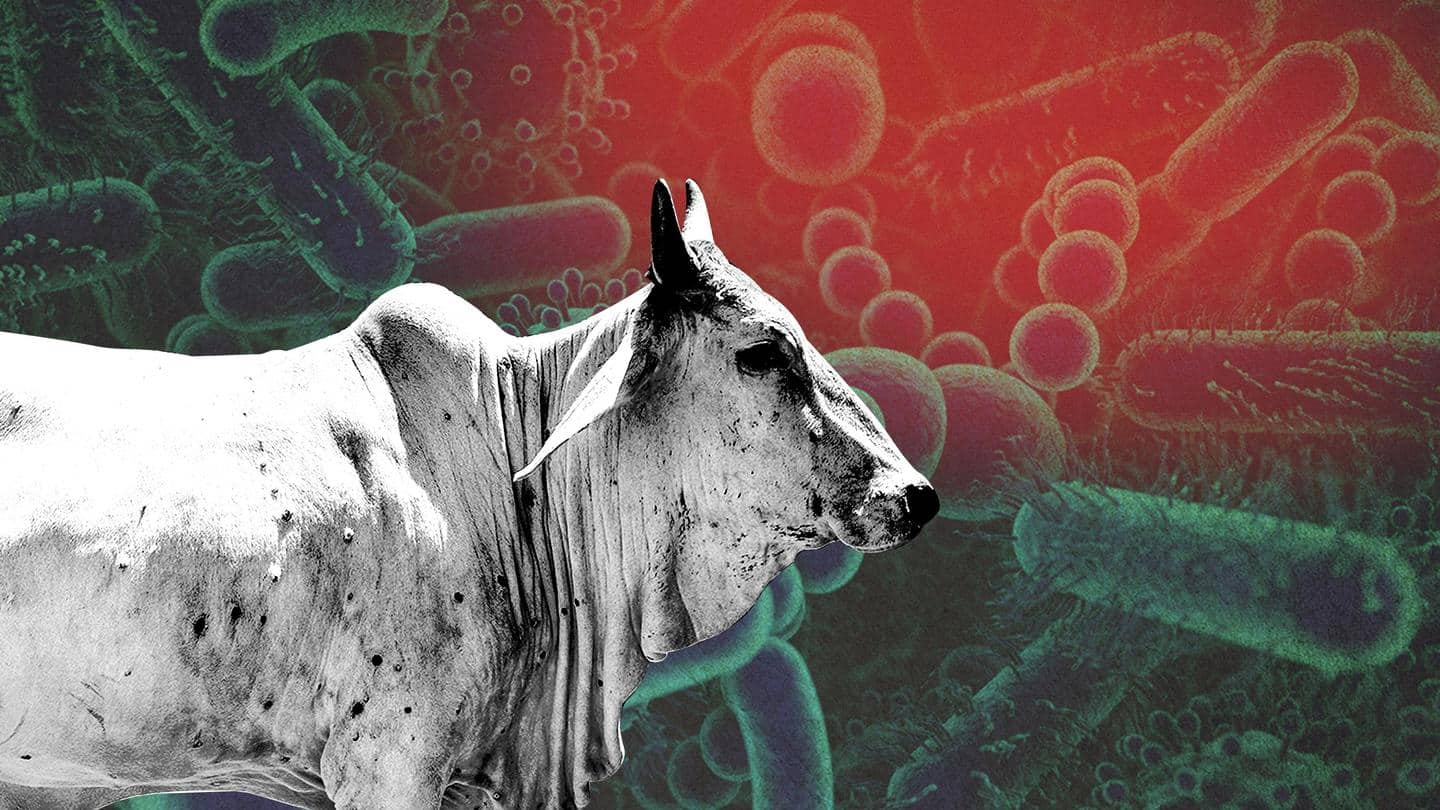
Lumpy skin disease kills 67,000 cattle across India: Details here
What's the story
The lumpy skin disease (LSD) has claimed the lives of about 67,000 cattle in seven Indian states and one union territory, as per the data furnished by the central government on Monday. The government has started a vaccination drive with around 1.5 crore doses administered to affected cattle in Gujarat, Rajasthan, Punjab, Haryana, Uttar Pradesh, Uttarakhand, Madhya Pradesh, and Jammu and Kashmir. Here's more.
Context
Why does this story matter?
The first LSD case this year was reported in Gujarat's Kutch on April 23. It is a contagious viral disease in cattle that mostly affects cows, causing fever, skin nodules, and even death in some cases. It spreads through insects feeding on blood—such as mosquitoes or ticks—and also via contaminated water and fodder. LSD reportedly first entered India, Bangladesh, and China in July 2019.
Indigenous vaccine
Indigenous vaccine to fight the virus
At the International Dairy Federation World Dairy Summit in Greater Noida, PM Narendra Modi on Monday announced that an indigenous vaccine has been developed to fight the LSD-causing virus. The new vaccine—Lumpi-ProVacInd—has been developed by two research institutes of the Indian Council of Agricultural Research (ICAR). It's yet to be launched commercially. Currently, states are administering goat-pox vaccines—said to be "100% effective"—to control LSD.
Twitter Post
100% vaccination of cattle by 2025: PM Modi
The Government of India is working with the states to control Lumpy Skin Disease among cattle. Our efforts also include developing a vaccine for it. pic.twitter.com/Vr309mARwy
— Narendra Modi (@narendramodi) September 12, 2022
Information
Commercial launch of vaccine 3-4 months away
India's cattle population is around 20cr. Presently, two firms are producing goat-pox vaccines—with a monthly capacity of four crore doses. So, supply of doses isn't a concern for the Centre, said Jatindra Nath Swain, Secretary, Animal Husbandry and Dairying Department. Meanwhile, the indigenous LSD vaccine's commercial rollout will take three-four months as manufacturers need the Drugs Controller General of India's (DCGI) clearance, he said.
Details
LSD also affects cattle's milk production capacity
The states are currently administering a 3ml dose of the goat-pox vaccine to the cattle in areas that are affected, while 1ml is being given to the cattle in places that haven't reported any infections. Besides causing fever and skin nodules, the disease also affects the cattle's milk production capacity, which is why it has emerged as a huge concern for the dairy industry.
Rajasthan
Milk production fell by 3-4 lakh liters in Rajasthan
Meanwhile, Rajasthan has emerged as one of the worst-hit states; the milk collection there has been reportedly reduced by three-four lakh liters a day. Swain noted the average number of deaths in the state is currently 600-700 per day. In other states, however, the deaths are less than 100, he said, adding that the Centre has asked states to speed up the vaccination drive.
Maharashtra
Maharashtra issues helpline numbers to fight LSD
As LSD continues to spread across several states, the Maharashtra Chief Minister's Office has directed animal husbandry officials to stay alert and run awareness campaigns. The state government issued toll-free numbers—18002330418 and 1962—to help people fight the disease. Last week, Maharashtra was declared a "controlled area" to curb the disease from spreading. However, the viral disease hasn't reportedly affected the state's milk production much.